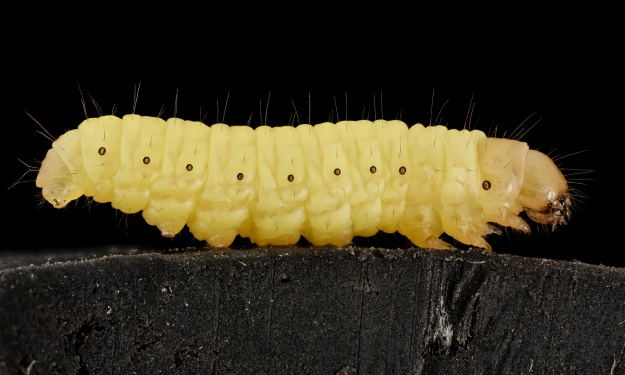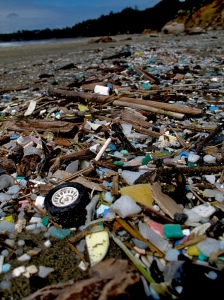By Roberta Attanasio, IEAM Blog Editor

Wax worm (Galleria mellonella). Credit: , .
“Like diamonds, plastics are forever,” began a recent New York Times . Or are they? No one knows exactly how long it takes for conventional plastics to completely degrade—it could be hundreds or thousands of years. In other words, a very long time. Even when broken down, plastics persist as tiny bits called microplastics.

Beach plastic, Otter Rock, Oregon, USA. Credit: , .
The first global analysis of the production, use, and fate of all plastics ever made in July 2017. The study shows that by 2015, humans generated 8.3 billion metric tons of plastics. Of these, 6.3 billion tons had already become waste. Only 9% of the waste was recycled, 12% was incinerated, and 79% accumulated in landfills or the natural environment. These staggering numbers explain why it is necessary to find strategies to degrade accumulated plastics.
A published in Current Biology raised considerable interest in those seeking to limit the impact of plastic pollution. Science journalists jumped on the wagon, and rightly so—the study results promised a possible solution to the accumulation of plastic bags. Worldwide, are used each year, 380 billion of which are used in the United States alone. Most plastic bags are not recycled. Journalists were also captivated by the story leading to the study, which was widely reported in the news.
